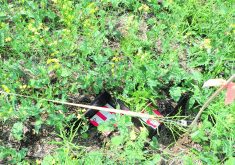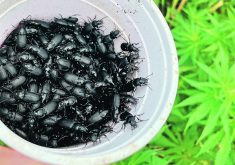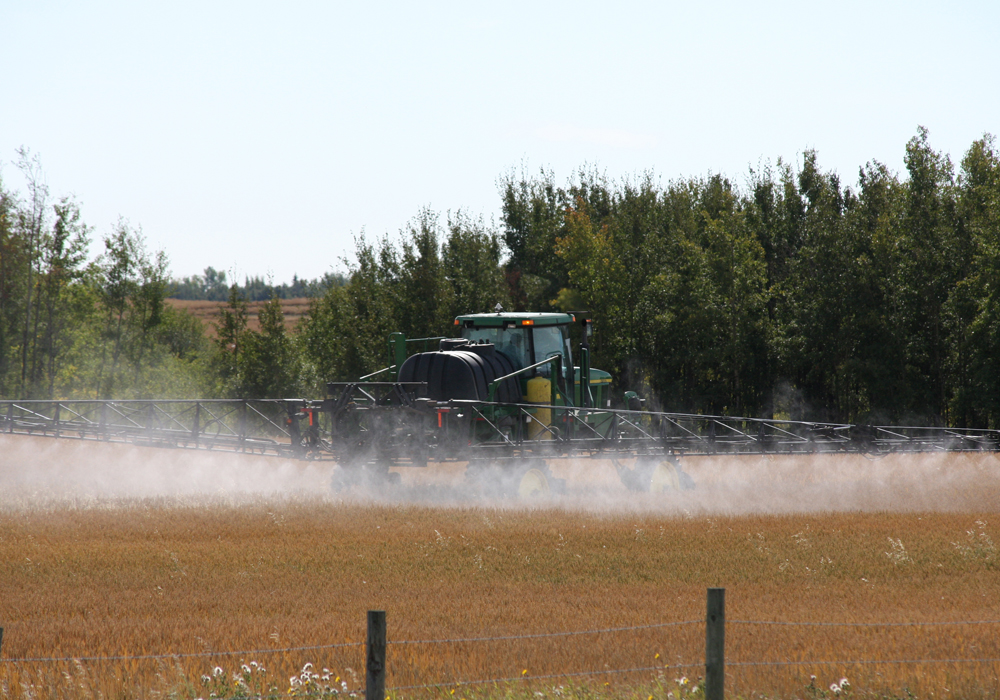Vet says the main strychnine replacement for controlling Richardson’s ground squirrels can also poison other animals
Strychnine might be out as a pest control tool in Canada but one of the main replacement rodenticides to control Richardson’s ground squirrel populations needs special attention in its use as well, says a University of Saskatchewan veterinarian.
Dr. Vanessa Cowan, assistant professor of toxicology at the Western College of Veterinary Medicine, said zinc phosphide can inadvertently poison other animals if precautions aren’t taken.
Cowan said zinc phosphide rodenticides are as effective as strychnine and cost less.
“Zinc phosphide is definitely an effective gopher killer and, if it’s more economically feasible, that’s certainly an advantage,” said Cowan.
Read Also

Canola oil transloading facility opens
DP World just opened its new canola oil transload facility at the Port of Vancouver. It can ship one million tonnes of the commodity per year.
However, there are potential risks to humans, livestock and pets.
Once ingested, zinc phosphide creates a toxic gas the poisoned animal can exhale, which can then affect anyone around the animal, especially if it’s in a confined area with no ventilation.
“People can become exposed, so that’s a real major point that people need to be aware of if they are using the product,” said Cowan.
Unlike strychnine, there is no model to trace non-target poisoning with zinc phosphide. Cowan said this could be an issue in tracking any emerging problems.
However, the potential for such secondary poisonings and one of zinc phosphide’s main advantages over strychnine is that secondary exposures diminish the longer the target pest is dead.
Bait placement is also a potential concern if instructions aren’t followed.
“We’ve had a few cases already where horses have gotten into poisoned oats, as one of the bait formulations for zinc phosphides is oats,” Cowan said. “And horses love oats so it’s all about prevention in this case.”
Tamper-proof bait boxes or covering burrows, suggested in the instructions, need to be followed.
Livestock or pets poisoned by zinc phosphate rarely have positive outcomes, said Cowan.
Such incidents could become human health concerns for those such as vets looking to treat pets and livestock who might not be aware of the reason for an animal being in distress.
Unlike anti-coagulant rodenticides, there is no antidote to zinc phosphide poisoning.
Cowan stressed the chances of secondary or relay poisonings are relatively small.
She hoped that spreading more information on zinc phosphides among vets, producers and pet owners will lead to improved safety practices.
Those dealing with livestock or pets that may have been exposed to zinc phosphide poisoning are urged to notify vets and ensure that animals are treated in a well-ventilated area. Use of a properly fitted respirator is also recommended during treatment, while gloves are also strongly suggested to avoid contact with an animal’s vomit.
Sales of strychnine for ground squirrel pest control ceased in March 2022 with its use barred as of March 2023.
















